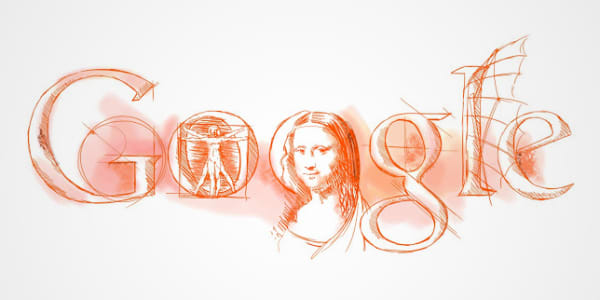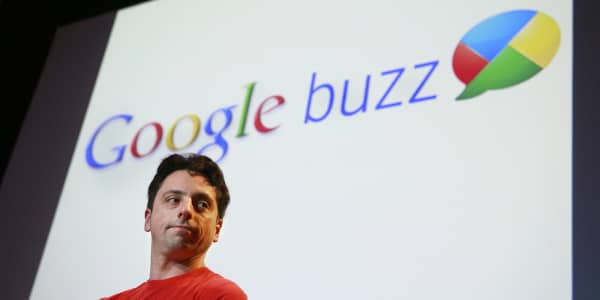It may be time for Google to rethink its famous company motto "Don't be evil."
During the 10 years the tech giant has been a public company it has been criticized repeatedly for everything from privacy violations to sparking class warfare.
But has Google really lost its moral compass?
Perhaps it never had one to begin with, said Rob Enderle, principal analyst at the technology consulting firm Enderle Group.
"When they put that policy in place, they didn't realize what they had done. They didn't understand the difference between good and evil," Enderle said.
"I think they should change their slogan to 'evil are us.' It seems like every time you turn around they are doing something that is at best questionable and at worst anti-people."
The almighty Google?
Privacy tops the list when it comes to reasons why some see Google's behavior as questionable, industry experts said.
Read More The next thing you'll pay for: Your online privacy
"It goes back to that saying from the 1800's: 'Power corrupts, absolute power corrupts absolutely,'" said Beverly Kracher, CEO and executive director of the Business Ethics Alliance. "People fear them and see them as powerful because of all the information they have gathered."
Google makes most of its money by using people's data for targeted advertising. Consumers get to use Google's products for free and in return the company gets access to the user's personal information to better place ads. While the company continues to enter new markets, its advertising profits are by far its most profitable business.
In fact, in Google's second quarter advertising revenue made up more than $14 billion of the company's total reported revenue of $15.96 billion.
Collecting information about its users is key to Google's business model and in 2010, Eric Schmidt, the company's executive chairman, gave a pretty clear picture of how much the company actually knows about its users.
"With your permission, you give us more information about you, about your friends, and we can improve the quality of our searches. We don't need you to type at all. We know where you are. We know where you've been. We can more or less know what you're thinking about," he said in an interview at the Washington Ideas Forum.
Schmidt also said in the same interview that the company's policy is "to get right up to the creepy line and not cross it."
Read More Google 'pretty sure' your data is safe: Schmidt
But as the company makes a bigger push into wearables, home automation and the connected car, the "creepy line" is becoming a lot less clear, experts said.
Read More Google applies for patent on contact lens camera
"We have only scratched the surface of unintended consequences," said Sam Ford, director of audience engagement at Peppercomm. "There are a lot of ramifications that they didn't necessarily think through initially and as the world gets more complicated it becomes harder to figure out ethical boundaries."
Google's fall from grace
Enderle argues that Google never really took its mantra seriously and has demonstrated a "high-level of arrogance" regarding privacy ever since its early days as a public company.
For example, in 2005 Google blackballed News.com for a year for publishing a story about some of the personal information it found by simply searching for the company's then CEO Eric Schmidt.
"That said a lot about their personal ethics. They provide services that violate everyone else's privacy, but don't want their privacy being breached," Enderle said. "They have taken the stance that little people don't really matter."
But one of Google's biggest privacy controversies was in 2010 when it was discovered the company had been collecting peoples' Wi-Fi data through its Street View cars, Enderle said.
Read More Coming up: a soundtrack to Google Street View?
The company had been basically accessing unencrypted home wireless networks to secretly collect people's emails, passwords and other personal data. However, Google maintains that legally it was doing nothing wrong because those people were transmitting data via their Wi-Fi networks as a form of radio communication, which is not covered under wiretapping laws.
"I realized then that they no longer had a measure of what was right and wrong. They didn't get that there was a problem," Enderle said. "And a practice of evil is not being able to tell the difference between what is inherently bad and good."
But calling Google evil because of its privacy flubs isn't exactly fair, Ford said.
"It too often becomes too simplistic in this good versus bad, evil versus righteousness debate," Ford said. "But there are complex questions involved. Big data provides pragmatic benefits that we wouldn't have had a few years ago."
"Perhaps we should ask would the world be a better place if there was no Google?" he added.
Road to redemption
There's no question that we have reaped many positive benefits from Google's technology, Ford said.
The company has reinvented the way people use the Internet and it is involved in numerous goodwill efforts to help bring technology to the masses. For example its is focused on bringing the Internet to unconnected parts of the world via a balloon that allows people to connect to Wi-Fi.
Google has also led the tech industry in some ways when its comes to offering tools and features that give more transparency and privacy.
The company was one of the first tech companies that began encrypting all email communication with a HTTPS connection. It was also the first search giant to introduce ad preference settings, which enable users to edit what kinds of ads Google serves up.
Google, which declined to comment for this story, was also among the first to implement an incognito window feature, which allows users to search the Web without Google saving a user's data.
But for the company's good deeds to outshine its missteps, it needs to be better about communicating its business model to consumers and making them aware that they are being tracked, experts said.
"What Google and any other company can do is try to be as transparent as possible and communicate over and over again what they want to do," Kracher said. "It's a delicate balance between having access to delicate information and people not understanding that."
So far, Google is not doing enough to educate its users, Ford said. But Google is not the only company guilty of this, he added. Many tech companies fear an open dialog about privacy concerns because they are concerned such a stance could open them to legal liability.
"The issue of legality is often the problem. They don't speak as frankly as they could because they are afraid," Ford said. "But the fundamental question that might be brought to Google's feet is that to what degree do they have a responsibility, not a legal one, but a moral responsibility to educate their users about the business model that fuels their service."
—By CNBC's Cadie Thompson. Follow her on Twitter @CadieThompson.





